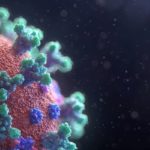1. Rapid antigen tests had similar sensitivity in detecting coronavirus disease 2019 (COVID-19) omicron and delta variants.
2. Rapid antigen test performance was more effective when reverse transcription-polymerase chain reaction (RT-PCR) results were positive for longer than 48 hours.
Evidence Rating Level: 1 (Excellent)
Study Rundown: Rapid antigen tests for detecting COVID-19 have been demonstrated to be easy to use, accessible, and cost-effective for helping to identify infection to inform isolation recommendations and prevent transmission. However, rapid antigen tests have lower sensitivity than RT-PCR tests for detecting SARS-CoV-2. Notably, sensitivity can be improved through serial testing. There is a critical gap in knowledge as to understanding the performance of rapid antigen tests in detecting the omicron variant, as early reports have said that they have lower sensitivity for the omicron variant than for other variants. Overall, this study found that nasal swab rapid antigen test performance was similar between the omicron and delta variants. This study was limited by having a testing frequency of 48 hours, which does not allow a finer temporal resolution of the analysis of test performance, and the results of the rapid antigen tests were based on self-reports. Nevertheless, these findings are significant, as they demonstrate that the performance of rapid antigen tests in persons infected with the omicron variant is not inferior to that in persons infected with the delta variant.
Click to read the study in AIM
Relevant Reading: Comparison of SARS-CoV-2 Reverse Transcriptase Polymerase Chain Reaction and BinaxNOW Rapid Antigen Tests at a Community Site During an Omicron Surge
In-Depth [prospective cohort study]: This secondary analysis of a prospective cohort study studied participants who did rapid antigen tests and had RT-PCR testing every 48 hours for 15 days. Persons who were enrolled from October 2021 to February 2022, resided in any state except Hawaii, Alaska, or Arizona, and had access to a smartphone were eligible for the study. Patients with COVID-19 symptoms in the 14 days before enrollment or a self-reported positive test result for COVID-19 in the previous three months were excluded from the study. The primary outcome measured was the sensitivity of the rapid antigen tests on the same day as the first positive RT-PCR result and 48 hours after the first positive RT-PCR result. Outcomes in the primary analysis were assessed via Fisher exact test and sensitivity differences using Taylor linearization. Based on the primary analysis, differences in sensitivity between variants were not statistically significant on same day testing [(Delta: 15.5%; 95% Confidence Interval [CI], 6.2% to 24.8%) vs. (Omicron: 22.1%; 95% CI, 15.5% to 28.8%)] or at 48 hours [(Delta: 44.8%; 95% CI, 32.0% to 57.6%) vs. (Omicron: 49.7%; 95% CI, 41.6% to 57.6%)]. Additionally, rapid antigen sensitivity did not differ significantly between delta and omicron-infected participants in participants who had RT-PCR positive results for 48 hours [(Delta: 81.5%; 95% CI, 66.8% to 96.1%) vs. (Omicron: 78.0%; 95% CI, 69.1% to 87.0%)]. Overall, this study demonstrates that rapid antigen testing provided similar sensitivities and effectiveness for detecting both the omicron and delta variants of SARS-CoV-2.
Image: PD
©2022 2 Minute Medicine, Inc. All rights reserved. No works may be reproduced without expressed written consent from 2 Minute Medicine, Inc. Inquire about licensing here. No article should be construed as medical advice and is not intended as such by the authors or by 2 Minute Medicine, Inc.


